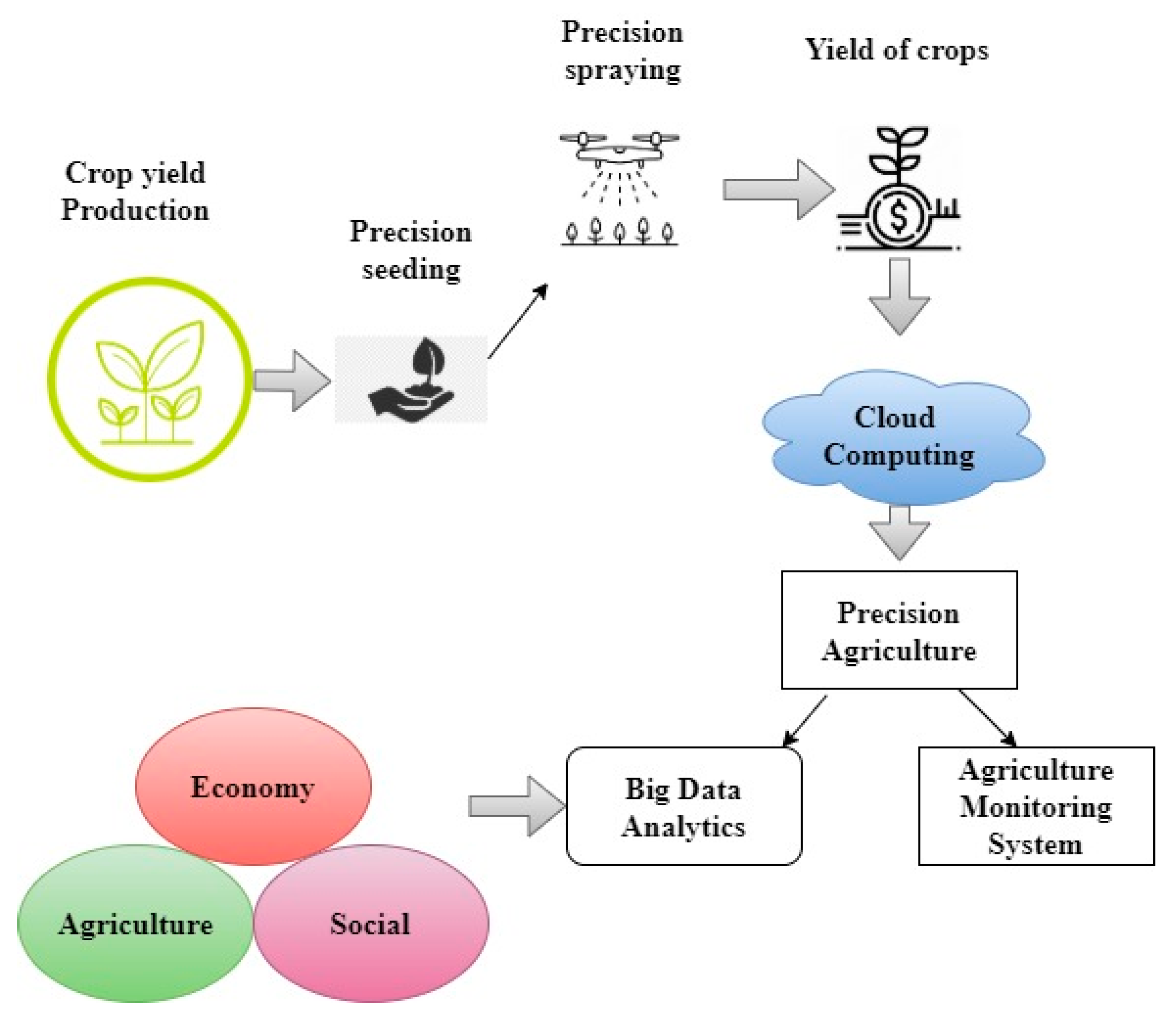Introduction
The global population is steadily climbing, and with it, the demand for food is increasing at an unprecedented rate. As a result, agriculture faces the daunting challenge of producing more food while minimizing its environmental impact. In this pursuit of sustainable agriculture, biotechnology and precision agriculture have emerged as game-changers. Together, they hold the key to optimizing crop management and ensuring a bountiful and environmentally friendly food supply.
The Role of Biotechnology
Biotechnology, as applied to agriculture, involves using living organisms and biological systems to enhance crop production and improve agricultural processes. Here are some key ways biotechnology is transforming agriculture:
- Genetically Modified Organisms (GMOs)
GMOs are crops whose genetic material has been altered in a way that doesn’t occur naturally through mating or natural recombination. Biotechnology has enabled scientists to introduce specific genes into crops to make them more resistant to pests, diseases, and environmental stressors. This modification can enhance yields, reduce the need for chemical pesticides, and even make crops more nutritious.
- Precision Breeding
Biotechnology has accelerated traditional breeding processes. Scientists can now identify and select desirable traits in plants more rapidly, speeding up the development of new crop varieties. This can be crucial in creating crops that are more resilient to climate change or adapted to specific regions.
- Sustainable Agriculture
Biotechnology plays a pivotal role in sustainable agriculture by reducing the environmental impact of farming. For example, some genetically engineered crops are designed to require less water or fertilizer, minimizing resource use and decreasing pollution from excess nutrients.
The Rise of Precision Agriculture
Precision Agriculture Tag, Farming Tag
Precision agriculture, often referred to as “smart farming,” involves the use of advanced technology to optimize various aspects of crop production. Here’s how it’s changing the landscape of agriculture:
- Data-Driven Decision-Making
Precision agriculture relies heavily on data, collected from various sources such as satellites, drones, and sensors. Farmers can gather information about soil health, weather conditions, crop growth, and pest infestations in real time. This data-driven approach allows for more informed decision-making and enables farmers to respond quickly to changing conditions.
- Precision Equipment
Farm machinery equipped with GPS technology and automation can perform tasks with unparalleled precision. This includes planting, harvesting, and applying fertilizers and pesticides. This not only improves efficiency but also reduces waste and environmental impact.
- Variable Rate Technology (VRT)
VRT enables farmers to apply inputs like water, fertilizer, and pesticides at variable rates across a field, rather than using a one-size-fits-all approach. This means that resources are used precisely where and when they are needed, reducing waste and cost.
The Synergy: Biotechnology Meets Precision Agriculture
Sustainability Tag, Crop Management Tag
While biotechnology and precision agriculture each offer substantial benefits on their own, their true potential is unlocked when they work together. Here are some ways these two fields synergize to optimize crop management:
- Tailored Crop Solutions
By combining biotechnology with precision agriculture, farmers can create highly customized solutions for their fields. For instance, genetically modified crops can be planted with precise spacing and nutrient delivery using precision equipment, ensuring optimal growth conditions.
- Disease and Pest Management
Biotechnology can provide crops with resistance to specific pests and diseases. When combined with real-time data from precision agriculture, farmers can respond proactively to emerging threats, reducing the need for chemical interventions.
- Climate Resilience
As climate change brings increased uncertainty to farming, the ability to quickly adapt crops becomes crucial. Biotechnology allows for the development of climate-resilient crops, and precision agriculture helps fine-tune their cultivation to changing conditions.
- Sustainable Resource Use
Precision agriculture minimizes resource wastage by precisely applying inputs. When biotechnology-enhanced crops are integrated into this system, resource use becomes even more efficient, contributing to sustainable and environmentally friendly farming practices.
Challenges and Ethical Considerations
Ethics Tag, Challenges Tag
While the fusion of biotechnology and precision agriculture offers promising solutions, it’s not without its challenges and ethical dilemmas. Some key considerations include:
- Environmental Concerns
The widespread use of GMOs raises concerns about their impact on ecosystems, including the potential for unintended consequences on non-target species and ecosystems.
- Equity and Access
The high cost of biotechnology and precision agriculture tools may create disparities, limiting access for smaller and resource-constrained farmers.
- Genetic Diversity
Relying on a limited number of genetically modified crops may reduce genetic diversity, making agriculture more vulnerable to pests and diseases.
Conclusion
Biotechnology and precision agriculture are ushering in a new era of farming, one that promises to meet the growing demand for food while minimizing environmental harm. By harnessing the power of genetic modification, data-driven decision-making, and precision equipment, we can optimize crop management and cultivate a more sustainable and resilient agricultural future. As these technologies continue to evolve, it’s crucial to address the ethical concerns and ensure that the benefits of this revolution in agriculture are accessible to all. In doing so, we can cultivate a greener and more prosperous world for generations to come.



